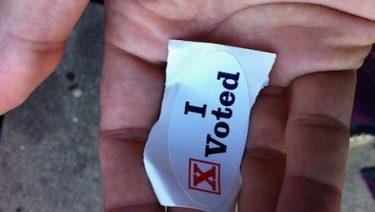By Sarah Downey | The Center Square
A Superior Court judge has set a December trial date for a lawsuit that challenges the voter registration process under 2017 Senate Bill 3.
Possible changes to the law that result from the trial won’t affect the Nov. 5 municipal elections, but could be a factor when the New Hampshire presidential primary occurs in 2020, most likely in early February.

While SB 3 has raised the bar to prove residency, Buckley notes it has also sought to prevent voting by those in New Hampshire for temporary purposes. “Temporary purposes include, but are not limited to, being present in New Hampshire for 30 or fewer days for the purposes of tourism, visiting family and friends, performing short term work, or volunteering or working to influence voters in an upcoming election.”
The legal action, which was filed in September 2017 by the League of Women Voters and five other individuals, argues that SB 3 is unconstitutional and places undue burden on young and low-income voters by requiring extra paperwork with regard to residency.
“SB 3 imposes several brand new, highly confusing, unnecessary and intimidating hurdles to voting,” states their Amended Complaint for Declaratory and Injunctive Relief.
Named as defendants are the state attorney general and secretary of state because of their duty to enforce election laws. Their emergency motion to dismiss states, “the plaintiffs have failed to allege an ‘actual or imminent’ injury,” as a result of SB 3.
According to an analysis by Stephen Buckley on the New Hampshire Municipal Association website, “Before SB 3 those seeking to register to vote were required to fill out a voter registration form and provide reasonable documentation of identity, citizenship, and age.” Proof of “the registrant’s address, such as a New Hampshire driver’s license, resident vehicle registration, or federal photo ID, were presumptive evidence of domicile.”
While SB 3 has raised the bar to prove residency, Buckley notes it has also sought to prevent voting by those in New Hampshire for temporary purposes.
“Temporary purposes include, but are not limited to, being present in New Hampshire for 30 or fewer days for the purposes of tourism, visiting family and friends, performing short term work, or volunteering or working to influence voters in an upcoming election.”
In the calendar Judge David Anderson approved for the upcoming bench trial, preliminary witness lists were scheduled to be disclosed by this week. Final witness and exhibit lists are due by Nov. 20, and the trial is set to begin Dec. 2. The judge wrote that while the defendants may be opposed to the tight time frame, “the court believes it will benefit from … the analysis that is found in either the rebuttal expert reports or Defendants’ experts’ response to the rebuttal reports.”


